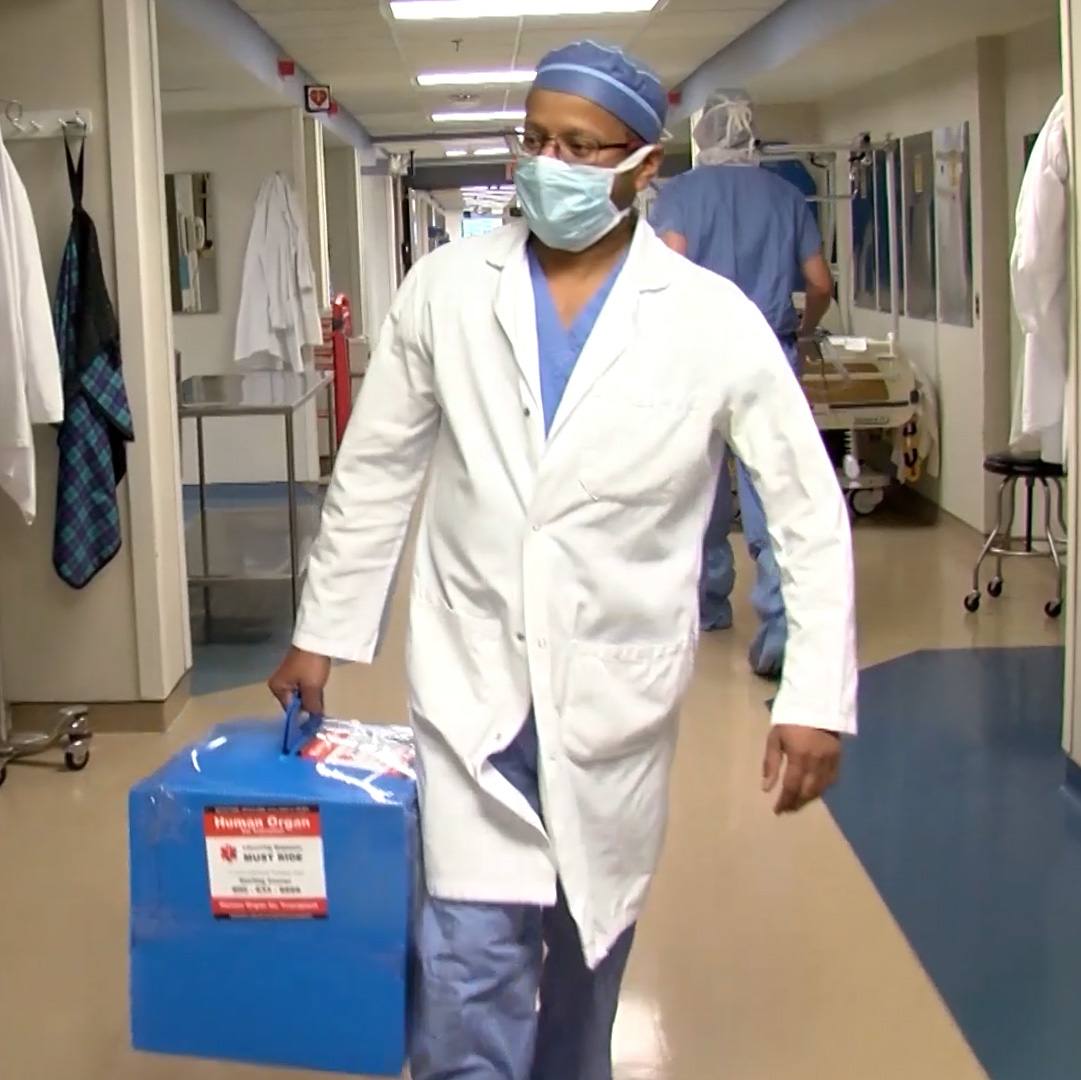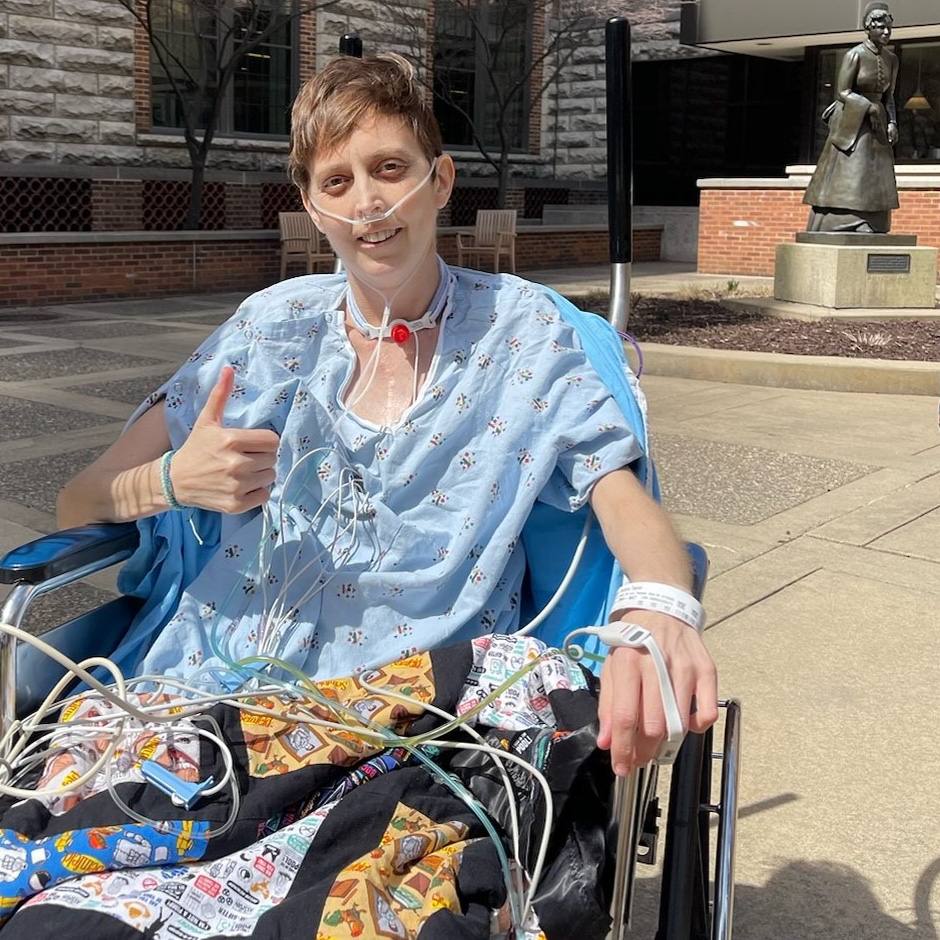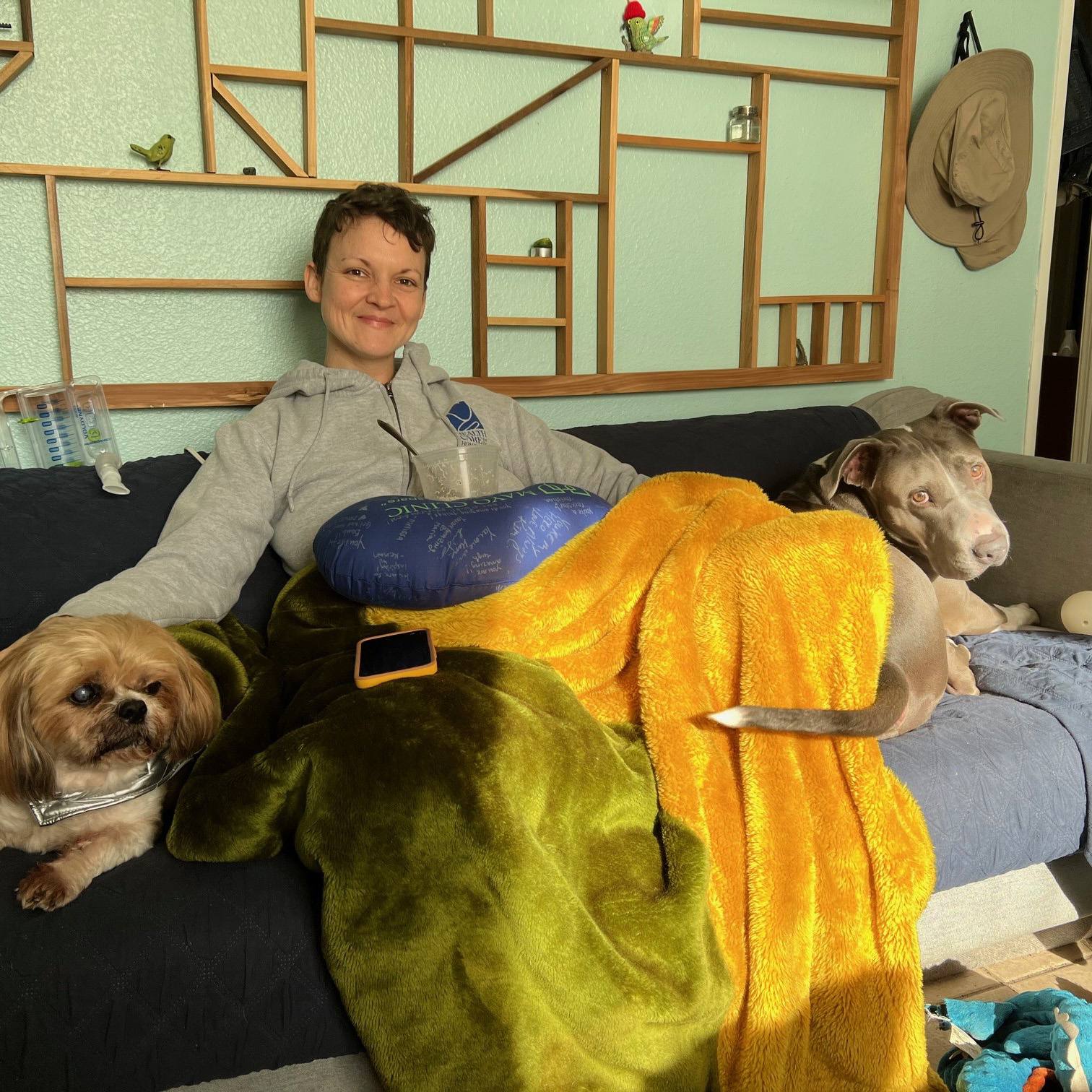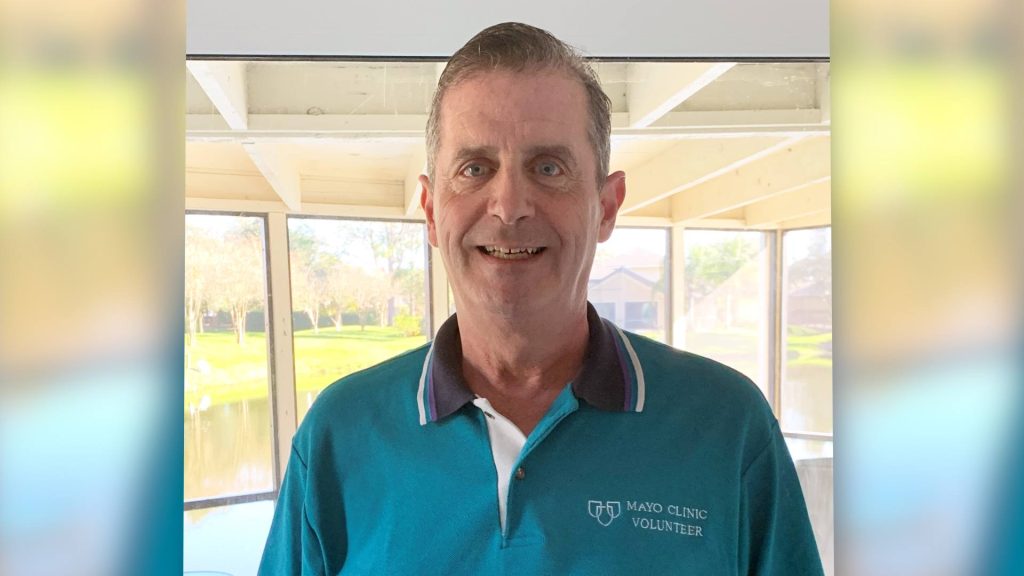
In 2020, just as COVID-19 was breaking throughout the world, 60-year-old Gerald (Gerry) Polcari had a sudden gallstone attack that blocked his biliary system. In addition to experiencing extreme pain, Gerry's kidney and liver began to fail. He went into septic shock and eventually necrotizing pancreatitis — a rare condition called secondary sclerosing cholangitis, which results from a loss of oxygen to the liver. Gerry had previously enjoyed a healthy life with no symptoms or warning signs that anything was wrong. After four months in a Boston-area hospital without family being able to visit due to COVID-19 restrictions, his doctors were unable to determine why he was not recovering. However, they were able to determine he had suffered irreparable damage to the biliary system of his liver.
Gerry would learn that the only treatment for his condition would be a liver transplant. "I was, of course, incredulous when they told me that the only treatment was a liver transplant," says Gerry. "How could this have happened to me? I was living my best life — both personally and professionally. I had signed up as an organ donor when I originally got my license at age 16, but never in a thousand years expected to have to be on the receiving end of an organ transplant."
Gerry was listed for a transplant in Boston in September 2020, and he remained critically ill because his liver could not clear toxins. He was hospitalized every six to eight weeks throughout 2020 and 2021 with recurring sepsis, frequently undergoing endoscopic retrograde cholangiopancreatography procedures (ERCP) to clear out his biliary system.
"I was on a first-name basis with many of the doctors and technicians in the ERCP process," he says. "Due to my extended hospitalization, I had lost over 50 pounds and eventually was on a feeding tube for nearly one year. Needless to say, it was not an experience I would wish on anyone."
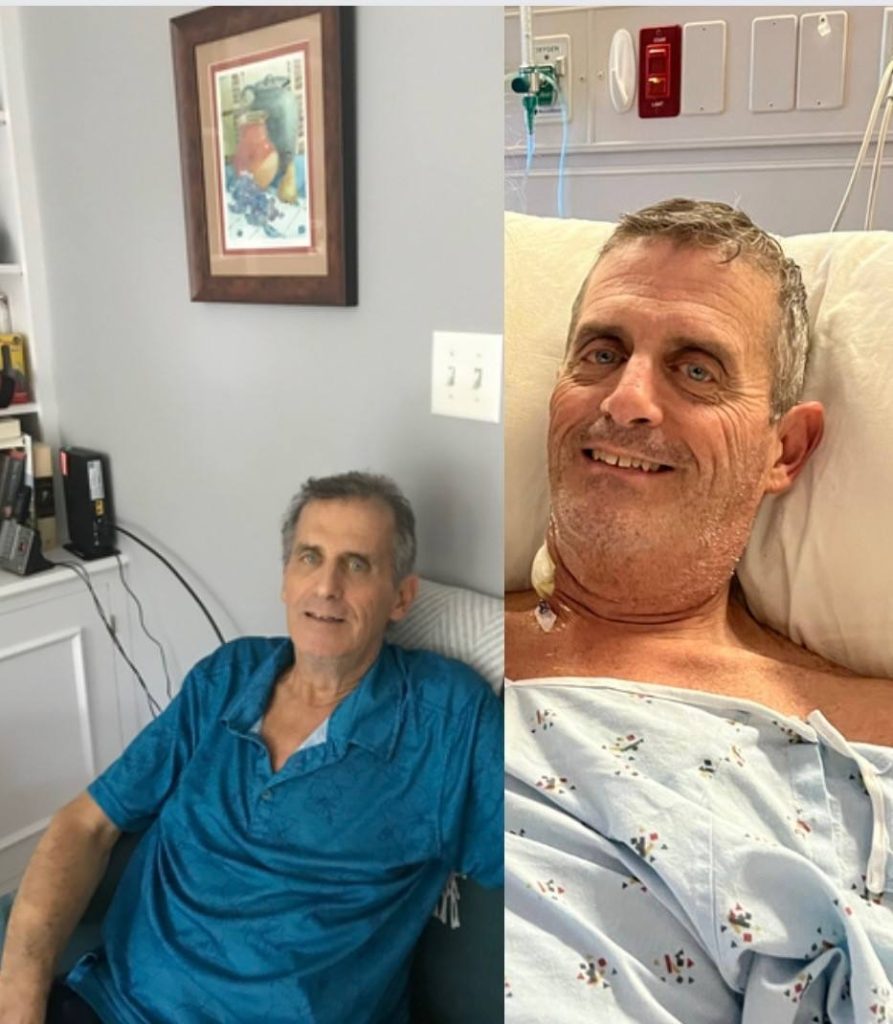
As a result of the recurring sepsis and biliary issues, Gerry became increasingly antibiotic-resistant from repeated treatment for sepsis, and in June of 2021, his medical team in Boston was concerned that they were running out of antibiotics to treat him. They feared he could die from an infection. The doctors recommended that he and his family consider being evaluated at other transplant centers where the average Model for End-Stage Liver Disease (MELD) score at transplant was lower than it was in New England, thereby improving his odds for a lifesaving liver transplant. His infectious diseases physician in Boston highly recommended he transfer to Mayo Clinic in Florida to be evaluated and seek another opinion.
Gerry and his family arrived in Florida for an evaluation in July of 2021. "My wife had to push me through the airport in a wheelchair — that’s how weak I was," he recalls. "I was very much afraid that I would never physically recover and would be an invalid for the remainder of my life. But arriving here and looking around, we were immediately struck by the natural beauty of northern Florida. After a few weeks, I started to notice that my health improved marginally because I was able to be more physically active — walking on the beach primarily."
Mayo Clinic accepted Gerry into the transplant program in August 2021. That was when he and his wife decided to relocate to Florida so that he could continue to be active outdoors, especially in contrast to the cold winters up north. He waited about seven months for the final call that resulted in his liver transplant in February 2022.
"During my nearly two years of serious illness, I received seven calls for possible transplant," says Gerry. "It was an emotional process to have our hopes dashed six times. But the seventh call was the charm, and I am forever grateful for my donor's and their family's decision to donate their loved one's organs."
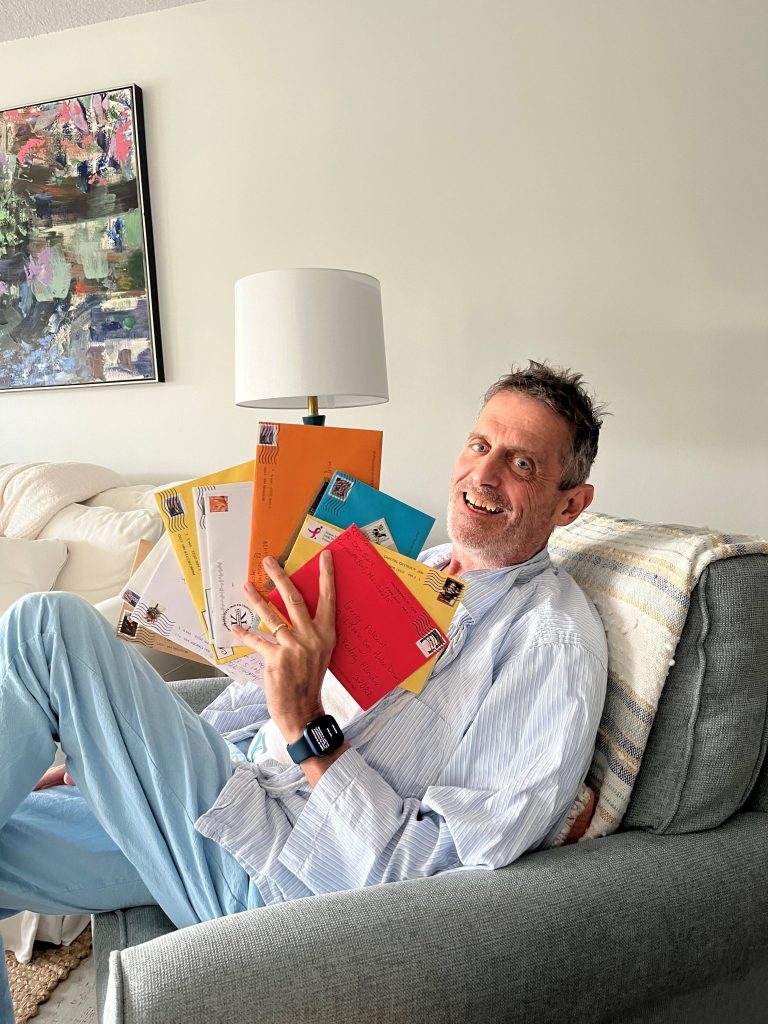
Today, Gerry says he is "doing amazingly well, better than ever anticipated."
"I had experienced such a catastrophic illness that damaged everything in my body that I feared I would remain incapacitated for the remainder of my life," he says. "I am happy to report that my new liver is working well, and over the past two years, I have gradually recovered my physical health."
In addition to his transplant, Gerry credits the care he received at Mayo Clinic and its atmosphere with saving his life. "I have such respect for the Mayo philosophy — of healing the whole person," he says. "The artwork, gardens and occasional piano music are so peaceful. The facilities are state-of-the-art, and I always had the sense that all the staff — from the cleaning people to the transplant surgeons — always had my best interests at heart. The care of my Mayo doctors and nurses was exemplary, and the utmost attention was given to my incredibly complicated case."
It was not just the hospital staff that had an impact on Gerry and his recovery. He also gained a sense of community and purpose from fellow liver transplant patients before and after his transplant.
"I was immediately connected to a liver transplant support group that continues to be a source of purpose for me," says Gerry. "I met others who were thriving after their transplants, which inspired me during some dark days. As we joke amongst ourselves, we are all members of a club we never asked to join. I continue to be involved and pay it forward by helping people new to the group and in that same frightening and lonely place."
Following his transplant, Gerry vowed to give back to Mayo Clinic through volunteer work. Before returning to full-time work, he volunteered on the transplant floor as a nurse aide, restocking supplies and cleaning nursing stations, among other tasks. Through his volunteering, he was able to reconnect with some of the people who took care of him. "That was incredibly heartening to be able to thank them in person for all they did for me," says Gerry. He also volunteers with LifeQuest Organ Recovery Services doing tabling events and speaking at various programs about his transplant experience.
"Our goal is to try to get people to sign up as organ donors as there is such a shortage nationally of healthy organs and over 100,000 people just like me — incredibly sick, with no treatment options other than an organ transplant," says Gerry. "Additionally, I have remained involved in the Second Chance Support Group, offering my perspective to pretransplant patients, and offering to meet them in person if they are local so they can see with their own eyes that it's possible to regain good health and an amazing quality of life. I never actually believed that would ever be possible again for me, but yet, here I am, forever grateful for having my own second chance at life."
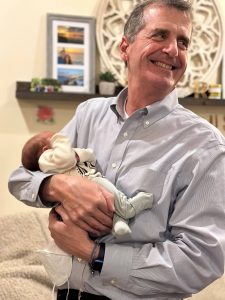
This Donate Life Month, Gerry encourages others to consider giving someone a second chance at life by becoming an organ donor. "I would say that it is the last gift you can bestow on the world, a gift that means a second chance to a very sick patient and their family," he says. "Because of my donor, I have lived to not only regain my good health, but to continue on my life's journey. In January, I welcomed my first grandchild into this world — something that I was not sure I would ever live to see. No words can describe how incredibly grateful I am for my donor's final act of generosity."
Related Articles
